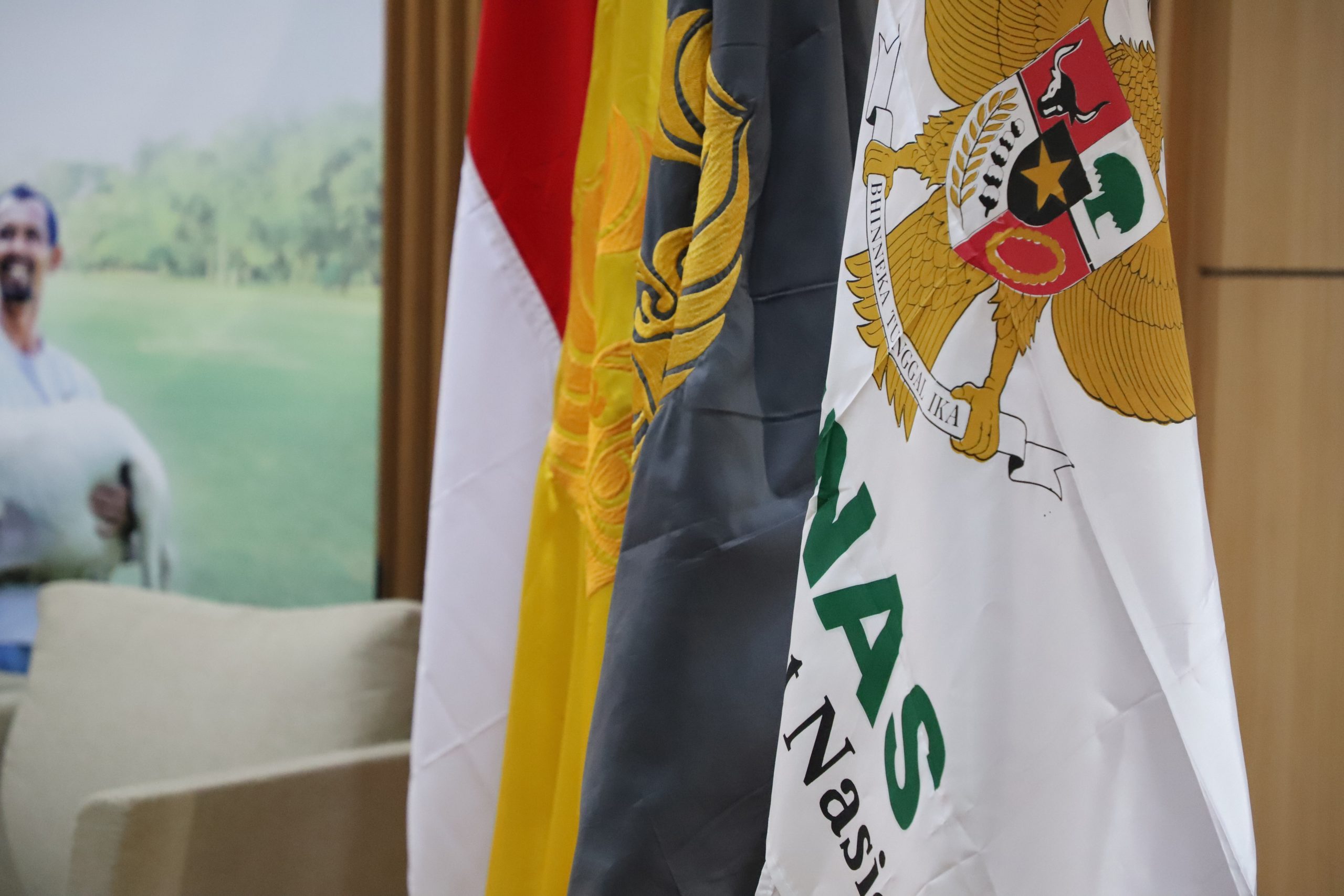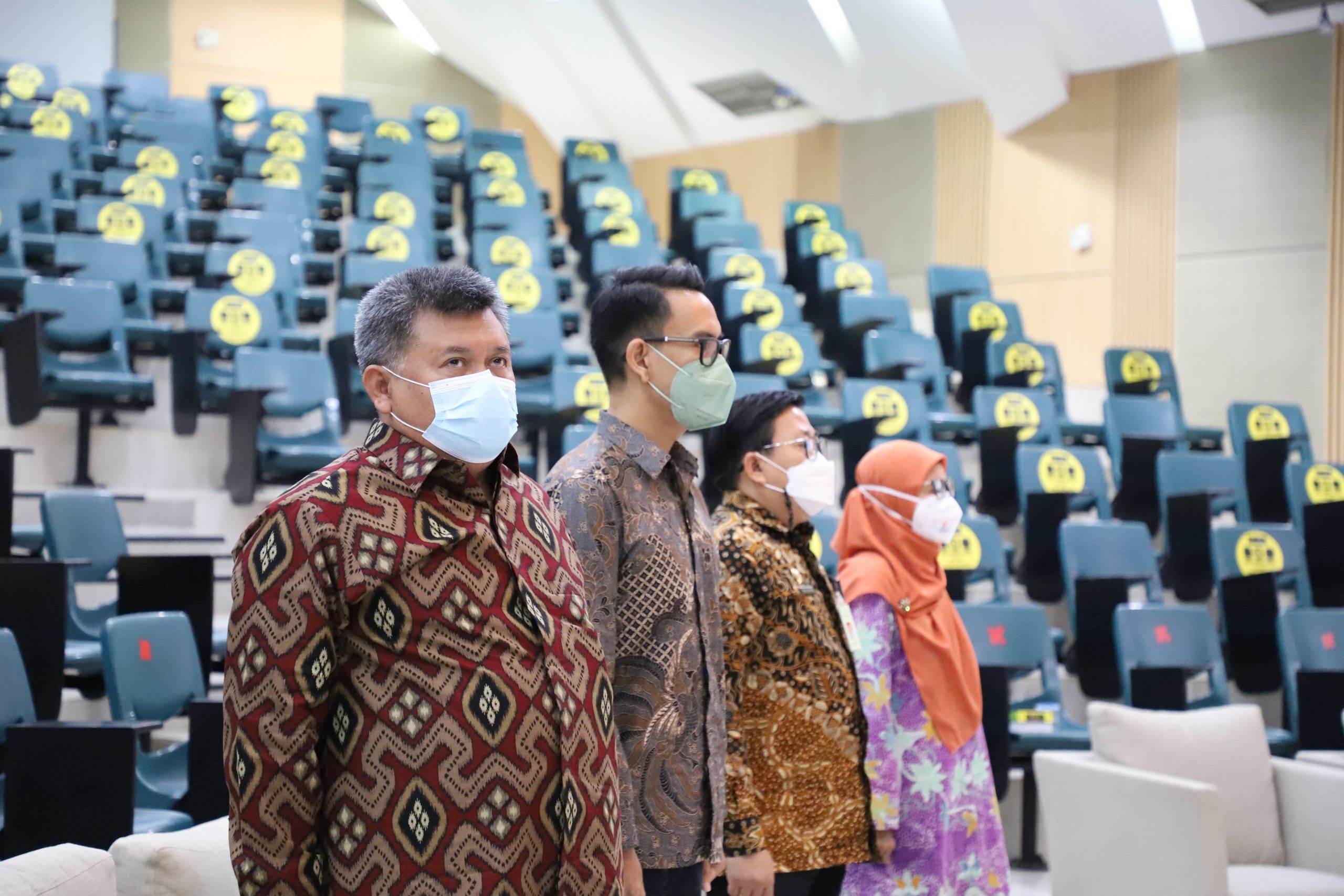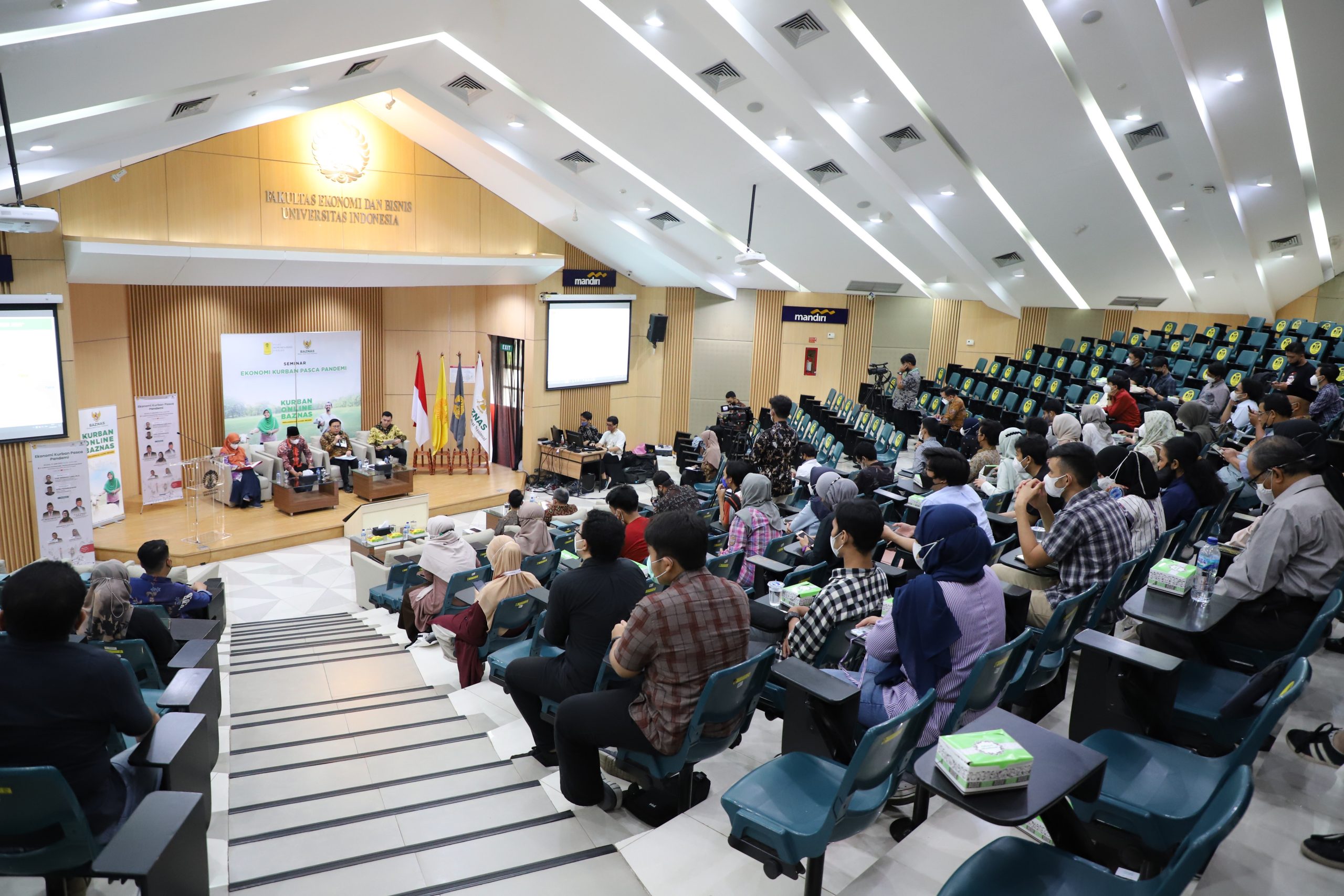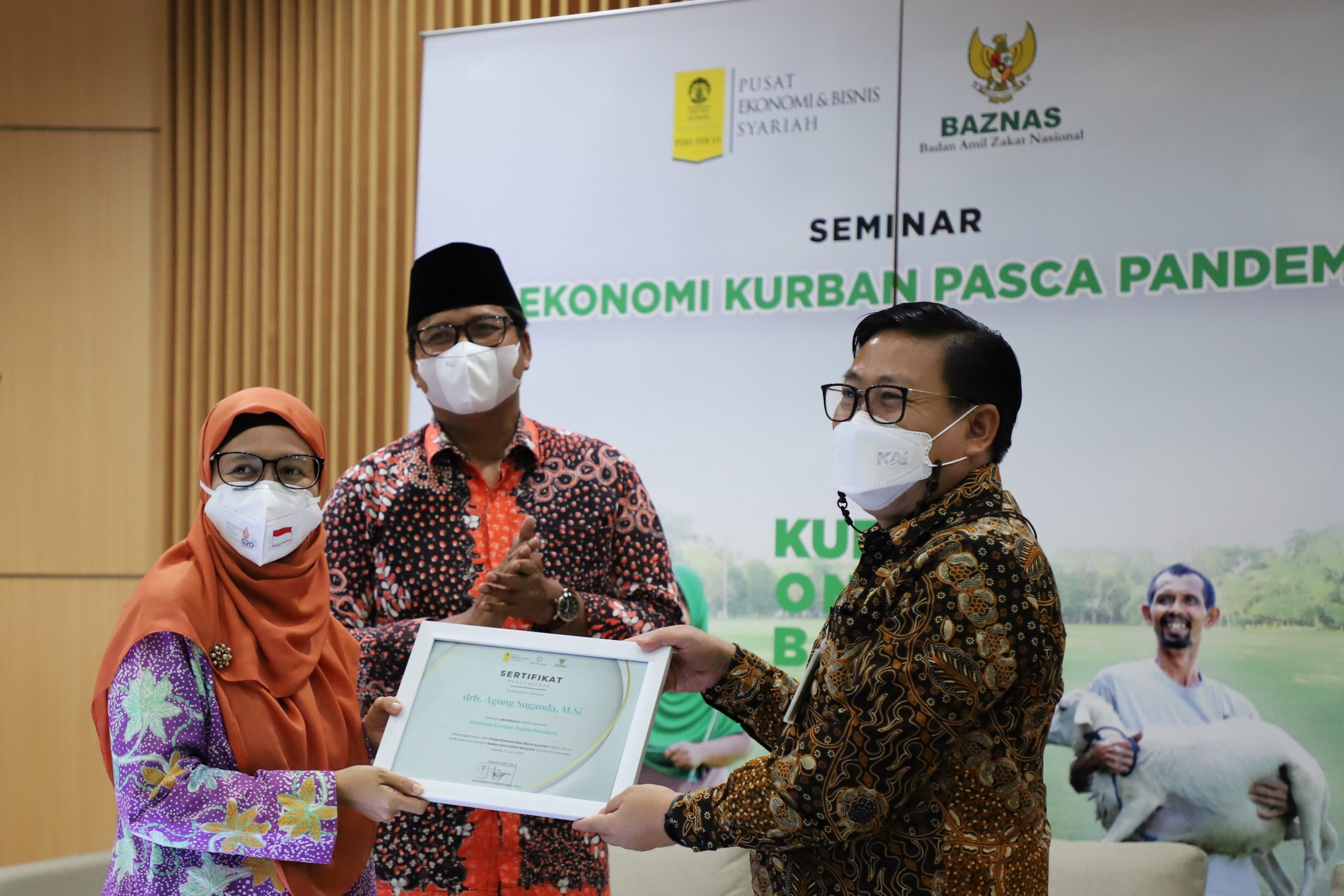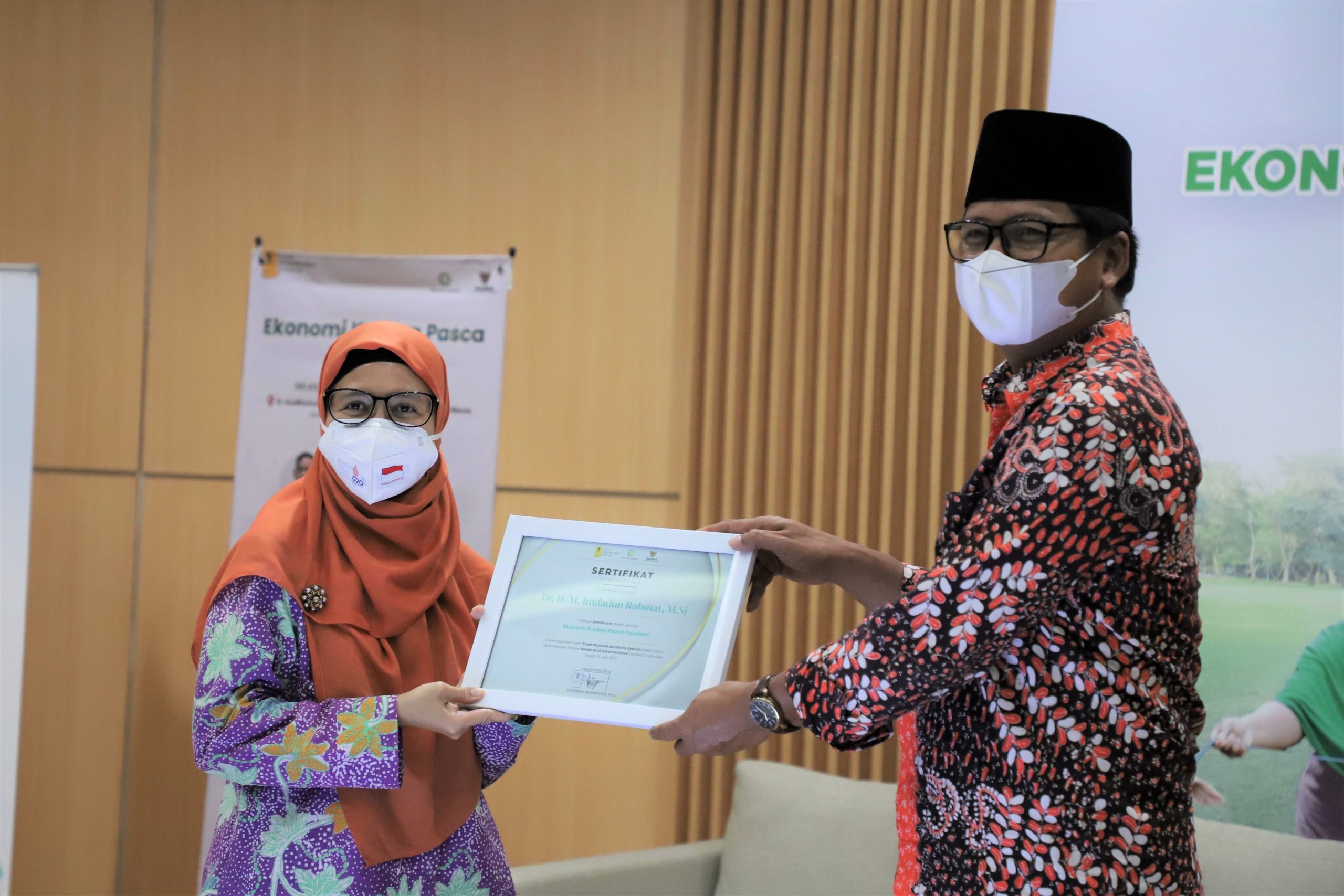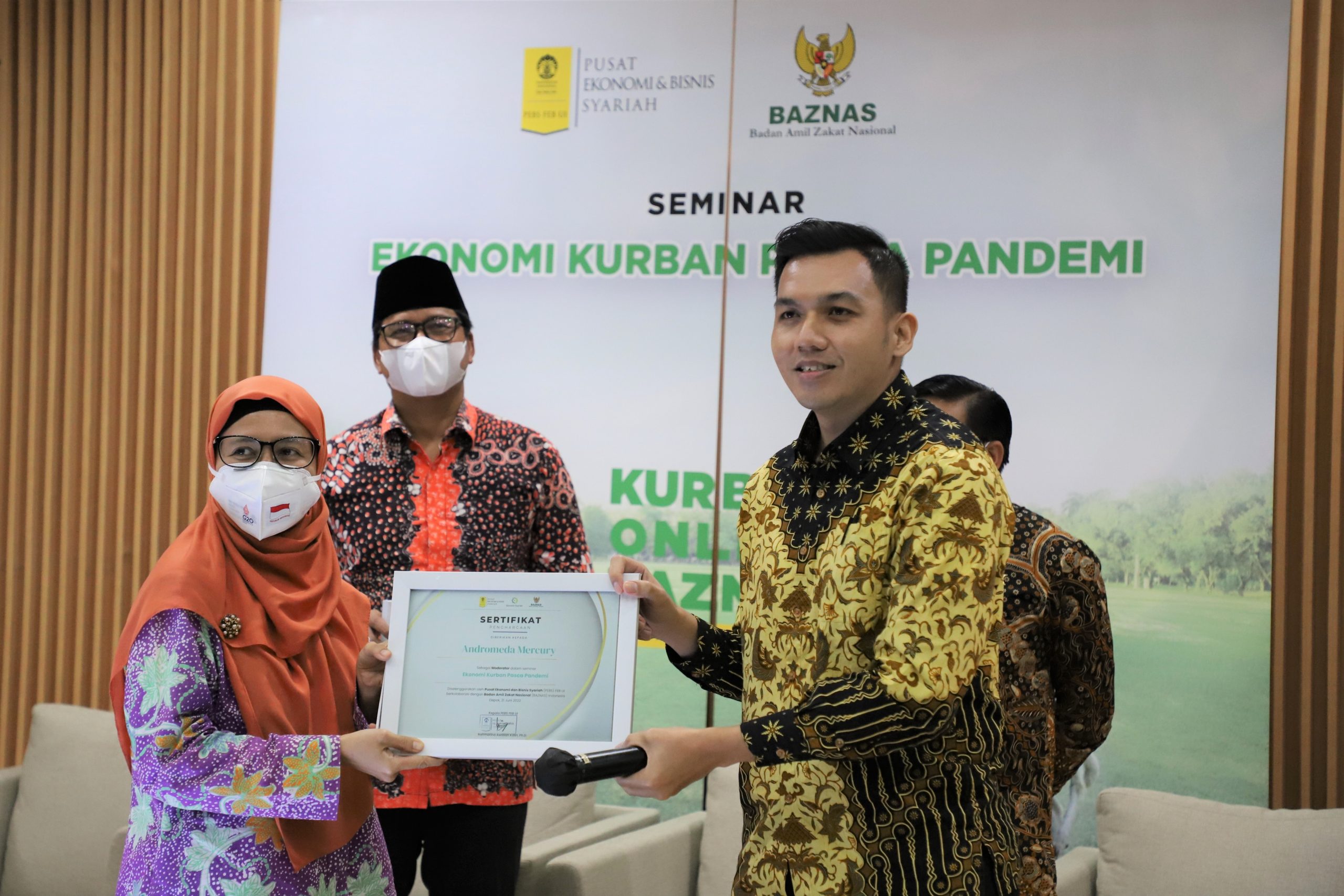Seminar of PEBS FEB UI and BAZNAS RI, Offering Economy after Pandemic
Rifdah Khalisha – Public Relations FEB UI
DEPOK – (21/6/2021) In order to enliven Eid al-Adha, the Center for Sharia Economics and Business (PEBS) FEB UI, together with the National Amil Zakat Agency (Baznas) RI held a seminar on “Post-Pandemic Offering Economy” at Soeriaatmadja Auditorium, FEB UI Depok Campus, on Tuesday (21/6).
After the pandemic hit the economic condition of Mustahik farmers, Baznas is now trying to encourage the revival of the people’s economy on the momentum of Eid al-Adha 1443 Hijri. Moreover, the government has leeway for various activities, including buying and selling livestock, while implementing strict health protocols.
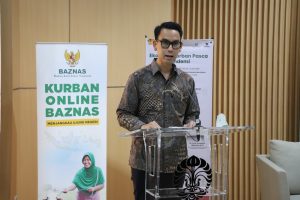
In his opening remarks, the Vice Dean for Education, Research, and Student Affairs of FEB UI Arief Wibisono Lubis, Ph.D., pointed out that the Eid al-Adha celebration is not just an act of worship. More than that, it has a tremendous economic impact. According to 2021 data, the economic or financial potential of Qurbani activities in Indonesia reached 18.2 trillion rupiahs from a total of 2.2 million Qurbani performers.
“If managed better, it can strengthen the community’s economy and empower breeders. Moreover, currently, the welfare of smallholder farmers is still relatively low. Despite the livestock outbreak of Foot and Mouth Disease (FMD), the economic potential of Qurbani activities will not decrease sharply compared to the previous year,” he said.
Furthermore, Arifin Purwakananta, Deputy I for Collection of Baznas RI delivered the keynote speech. On the occasion of Qurbani every year, Baznas always echoes the main idea of equity so that people in rural, coastal, and border areas can enjoy Qurbani meat slaughtered from urban areas considered surplus.
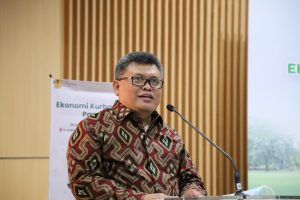
Arifin continued that Baznas has also encouraged modernization in sacrifice by intensifying “Kurban Online Baznas” since 2016. Moreover, this innovation is so relevant during the pandemic that anyone can perform Qurbani without leaving the house quickly and conveniently via mobile phones anywhere.
Baznas also ensures the safety of sacrificial animals, with strict assistance and prevention of transmission, in all Baznas-assisted Livestock Centers from endemic foot and mouth disease (FMD). “Baznas routinely provides FMD prevention education to Mustahik breeders so that they do not panic selling and participate in early prevention,” he said.
Other steps include limiting the entry and exit of livestock or anyone who is not interested in the farmer’s cage; spraying disinfectants for cages, vehicles, equipment, and work equipment; providing feed and vitamin drugs to increase livestock immunity; coordinating with local agencies to prevent outbreaks.

During the presentation session of the speakers, the Director of Livestock Breeding and Production, Ministry of Agriculture, Drh. Agung Suganda, M.Si. emphasized that the public, especially farmers, does not need to worry too much about the FMD outbreak because the government can control it by limiting livestock mobility to reduce the rate of transmission. In the red zone of FMD cases, livestock are only mobilized in the red zone. The same applies to livestock in the yellow zone and green zone.
Currently, the total number of farm animals in Indonesia reaches 18 million. Meanwhile, the exceptional supply of sacrificial animals is 2.2 million heads. “The estimated need for livestock for sacrifice this year is around 1.8 million heads, so there is a surplus of 400 thousand heads.”
Although the national demand for sacrificial animals is surplus, Agung sees some regions in Indonesia still experiencing a deficit. Therefore, the public can take advantage of online Qurbani services so that Qurbani animals can be slaughtered in local cages. That way, the risk of FMD transmission decreases, and the meat distribution is evenly distributed in various regions.

The Baznas Welfare Index study to measure the impact of Qurbani distribution shows a good predicate. That means that the empowerment of Mustahik breeders significantly impacts the material and spiritual welfare, quality of human development, and independence of breeders.
“Based on the latest poverty indicator measurements in 2021, the Mustahik breeder empowerment program from Baznas was able to alleviate as much as 81 percent of the Mustahik breeder population from the poverty line. The proportion of alleviation from the poverty standard of the Central Bureau of Statistics is getting better from 2019 to 2021,” said Dr. H. M. Imdadun Rahmat, M.Si., Deputy II for Distribution and Empowerment of Baznas RI.
Imdadun continued that Qurbani has a social meaning because Allah prescribes it as a mechanism for sharing, charity, and spreading benefits from individuals to people in need. That also encourages Baznas to facilitate Qurbani performers (Mudhohi) to spread kindness and maximize meat distribution to various places in Indonesia and abroad.
“Baznas has various programs in the momentum of qurbani, such as Tebar Kurban BPKH, Packaged Qurbani, Corporate Qurbani, and Independent Qurbani. All of them have the same goal: to benefit the people everywhere,” he said.
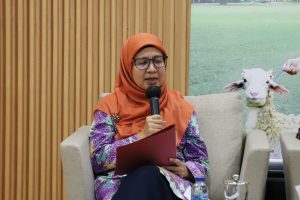 B
B
Based on data from Baznas and PEBS FEB UI (2018), every year, there is a turnover of 69.9 trillion rupiahs, equivalent to 3.8 percent of the 2022 state budget, during the implementation of Qurbani. Given this potential, according to the Head of PEBS FEB UI Rahmatina Awaliah Kasri, Qurbani should not only be a routine for the spiritual aspects of Muslims. However, it must have an impact on improving the economy of animal breeders and improving nutrition for the recipient community.
She said, “The level of meat consumption in Indonesia is still far below neighboring countries, such as Malaysia and Singapore. Now the post-pandemic condition is getting better. With more supply, of course, we hope that the price will be more affordable. Farmers sell it reasonably, around 20% of the normal price.”
“So, breeders, suppliers, butchers who work in slaughterhouses and other stakeholders will also feel the improvement of economic welfare from the implementation of Qurbani,” he concluded. (hs)


